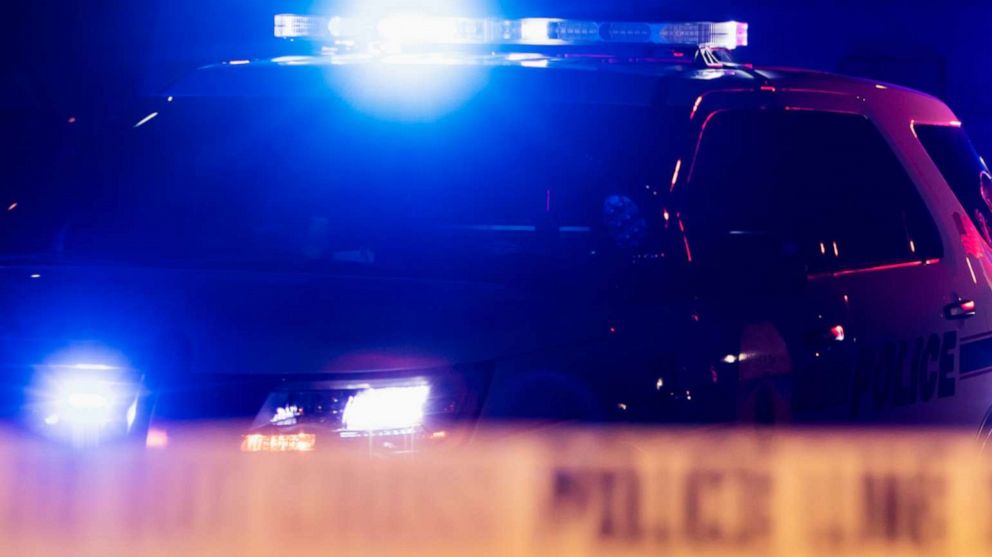Why carjackings have skyrocketed in parts of the country during the pandemic
Carjackings have shot up 537% in Minneapolis this year.
After almost 30 years working as a firefighter in Chicago, Lt. Dwain Williams was familiar with danger.
So perhaps it is not surprising that when confronted by three men trying to take his car, he was prepared to fight rather than forfeit his SUV. He drew the gun that he legally carried. But the carjackers also had guns and fatally shot him, fleeing as they did so. A week later, they remain on the loose.
The assault on Williams, captured on surveillance video recently released by the Chicago police in an effort to identify and catch his killers, focused attention on a dramatic spike in carjackings there. In all of 2019, there were 501 incidents of that crime. So far that number has more than doubled to 1,125 this year, according to the latest Chicago police statistics.
But Chicago is neither the only nor the worst example of this disturbing crime trend. Minneapolis police report that carjackings there have shot up 537% this year. Carjacking calls to 911 in New Orleans are up 126%. Oakland police cite an increase of 38%. And while many police departments do not keep carjacking-specific numbers, instead classifying them as auto theft or armed robbery, crime experts like Chris Herrmann, a professor at John Jay College of Criminal Justice, say anecdotal reports of a carjacking surge are coming in from metropolitan areas around the country including Milwaukee, Louisville, Nashville and Kansas City.
Data for auto theft is easier to come by and, according to Herrmann, the numbers show that crime is also spiking in many cities this year, including a rise of 68% in New York, 36% in Los Angeles and 34% in Philadelphia. But carjackings draw attention as the violent, potentially fatal version of auto theft.

"Carjacking is just lazy car thieves or violent car thieves," said Herrmann. "The normal car thief is going to steal your car while you’re working or sleeping and you’re not going to find out your car is stolen until six hours later."
And he explains that the pandemic, which has normalized mask-wearing, makes these thefts easier.
"If we weren't in a pandemic and you saw a guy coming up to your car with a mask on, you probably would freak out and hit the gas pedal," he explained. "But nowadays, everyone's wearing masks. So there's this anonymity part of the pandemic that I think a lot of criminals are taking advantage of."
Mask-wearing anonymity may be only one way criminals are taking advantage of the pandemic as carjackings, along with other violent crimes, have risen sharply. According to a recent analysis by the Police Executive Forum (PERF): "Preliminary data from 223 police agencies across the United States reveal steep increases this year in homicides and aggravated assaults." One reason, reports PERF, is that to some extent law enforcement has been hindered by "the need to minimize officers' possible exposure to COVID."
A combination of factors during the pandemic, according to Roseanna Ander, executive director of the University of Chicago Crime Lab, has led to "real uncertainty around what police are expected or allowed to do."
That uncertainty, she said, along with the situation created by COVID -- "the social service sector has ground to a halt. People can't do in-person contact. Kids are out of school and don't have programming to go to" -- and the result is a "perfect storm."
Minneapolis, where that eye-popping spike in carjackings as well as increases in other violent crimes is happening, is being battered by this "perfect storm." The police department there is stretched thin, sharply reduced by retirements in the wake of last summer's protests and by budget cuts resulting from local "defund the police" activism. Now with schools closed due to COVID, more youthful offenders are apparently taking advantage of the situation. Minneapolis Police Commander Charlie Adams told ABC News that "80% of our carjackings and robberies are being done by juveniles, ages from 9 up to 17."
COVID has not only closed schools, it has kept juvenile detention centers from holding arrested youngsters, Adams said. "Some of these have been involved in 10 or more robberies. They're not being held," he noted.
Asked why carjacking in particular seems to be such an alluring crime for juveniles, Adams said “I just believe they know what's going on. They know what they can get away with.” He said these kids post about their carjackings on social media, “basically bragging.”
John Elder, a spokesperson for the Minneapolis Police Department, told ABC News that his department is "doing more public education" to fight this trend and he shared some of the ways people can reduce the chances of being a carjacking victim.
"We do know that oftentimes the carjackers are targeting people that that may be distracted," he said. "You have the mother who's taking her child out of a carseat. You have people that are unloading groceries, that sort of thing, where people's hands are tied up. Keep your eyes open. Drive by where you are going to go. Take a look, see what's happening. See if there's anyone lurking."
Finally, as the murder of Lt. Williams begs questions about resisting a carjacking, Elder has a nuanced answer. He said people resist a message to just give up their car "so we've learned a soft step around that." He puts it this way: "We can never tell you that you should or shouldn't fight back. But know what your limitations are, what your strengths are. Understand the value of what's happening and if somebody's got a gun, is your life worth your car?"
Meanwhile, back in Chicago, a sorrowful value has been put on information leading to an arrest of those who killed Lt Williams. The reward stands at $34,000. His funeral is Saturday.




